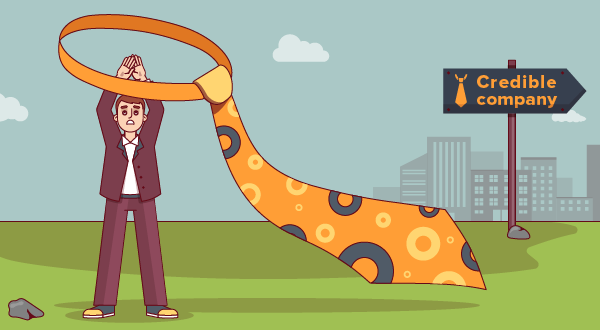Wil Schroter

Faking it as a startup is pretty much what being a startup is all about.
As first-time <a href=“https://www.startups.com/library/expert-advice/founder-vs-ceo”>Founders, we just don't realize that it's the norm. Instead, we worry ourselves about not being a big enough company, not having a full staff, or not having a proven product.
Well, guess what? If we're just starting out, we fake everything!
Our Fake Website
"But wait, won't people find out that all we have right now is a cheap landing page that my cousin created and just a couple of products available?"
Yes, and they generally won't care. When is the last time you deliberated on the corporate structure of a company before making a purchase? Probably never. Most customers assume there is some level of functionality and deliverability in our product because that's generally how companies operate.
As a startup, so long as we CAN deliver on what we're proposing, how we package it to the world is less important. So yeah, our Web site can look like a bigger, more established company, even if we're still working another job, so long as when someone hits the "buy" button, they get exactly what we proposed.
Our Fake Staff
In the early days, we’re the CEO, CFO, CMO, and Global Director of Answering Every Frickin Email Our Company Gets. There's no big staff, there's no org chart. It's just us handling every operation until one day, hopefully, we build enough of a company that we can afford to have someone else pick, pack and ship our product.
Once again, our customer doesn't care. Will they be put off that the Founder is answering their tech support questions? Absolutely not. Worst case, we can give ourselves a nickname to "look bigger" but guess what — every Founder runs support for a ridiculously long time. It's OK.
Our Fake Credibility
"But how are we going to convince customers that we're a legit business when the two of us have never run a company like this?"
Guess what — no one has run a startup until they have. So we're all "Fake Credible" until we prove otherwise. Despite what some may think, very few Founders are coming from an industry where they did "exactly this job" in their previous life. That's often because we're typically inventing new products for customers that don't exist yet.
So how do we fake it? We deliver to anyone that will listen, then ask them to support our claims. That often starts with getting family, friends, and colleagues to buy in, then using that social proof to get their friends to buy-in. We bring Advisors on board and use their social proof. We give away our products to customers just to get their testimonials. We basically do whatever we can for whoever will agree to establish our credibility as we go.
We all start from zero — that's really the point. Everything we work on is "fake" until we make it real. That's our job as Founders, and no one gets a free pass.
In Case You Missed It
I’m Killing Myself. How is Everyone Else Finding Work/Life Balance? We're supposed to believe that we can build a world-changing startup from nothing while simultaneously traveling to exotic places and enjoying our "best life". For most of us, that just doesn't add up. What's blowing us up, though, is how we approach the problem.
You Are NOT Your Startup (podcast) Wil and Ryan discuss why founders should separate themselves from their Startups, the lack of predecessors to guide young founders, what else to focus on besides building the business, and maintaining individuality.
How to Mix a Family and a Startup. How do we create a proper balance between growing our family and growing our startups? Do we have to swim in a sea of guilt through this entire journey or is there some other way to get ahead?
Find this article helpful?
This is just a small sample! Register to unlock our in-depth courses, hundreds of video courses, and a library of playbooks and articles to grow your startup fast. Let us Let us show you!
Submission confirms agreement to our Terms of Service and Privacy Policy.
Already a member? Login
Start a Membership to join the discussion.
Already a member? Login

What isn't stated is that you have to solve a real problem with a unique solution that is eminently defensible. And that you have proof points as to why you can do this better than others. And that you know how to make it a business (business model). Yes, you can "fake it" to some degree, but you have to have done enough real work to convince the money people it can work. And another thing that is not stated, is that pre-revenue, pre-product companies are a very narrow niche of investors.